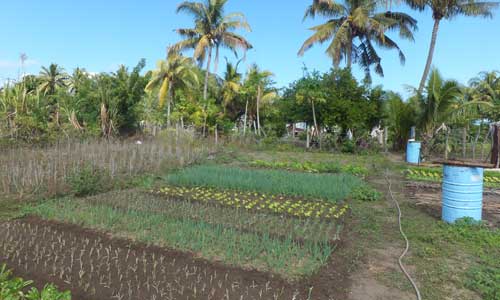Help Improve Food Systems: Support the Diet, Health, and Conservation Working Group
By Christa Rose, Founder
The Diet, Health, and Conservation Working Group of SCB (DHC) is a provisional group that wants and needs to grow. Focused on making food systems more sustainable, we recognize the powerful connection between nutrition, food choices, its production, distribution, and acquisition, and biodiversity conservation. Our overall goal is to forge progress in biodiversity conservation by raising awareness of the “win-win” potential of good health and environmental stewardship through wise food choices.
With current members from eight countries, our first initiative involves polling the conservation community to query the understanding of these connections, and application of that understanding. We’re drafting a web-based survey that aims to target and engage conservation professionals, students, teachers, activists, etc. to complete a brief questionnaire. Results will help guide the working group’s next steps including, ideally, three years of activities to propose if we attract enough SCB members to apply for official status. We will also formally disseminate our findings. We will circulate the survey in coming weeks. In April, two group members attended the British Ecological Society-Cambridge Conservation Initiative (BES-CCI) conference. In advance of the event, BES announced it would not serve ruminant meat as part of its conservation-minded catering policy. Our members spoke with meeting organizers onsite about their planning efforts, and together we were able to incorporate a few DHC-related questions into their program evaluation questionnaire (also an online instrument). We should receive the results soon, and can apply them as we will from our own survey.
 |
|
Crops in Fiji. Photo credit: Ashley McGuigan. |
Importantly, DHC does not advocate for one particular diet regimen for the human being. We do recognize the substantial health and environmental benefits of consuming a diverse, whole-foods, plant-rich diet, and the potential to impact biodiversity conservation powerfully by transitioning away from industrially produced, chemical-laden monocultures, the inefficiencies of water- and land use-intensive crops not grown for human consumption, routine antibiotic use in livestock production and aquaculture, animal product- and sugar-heavy diets, unsustainable fishing, and more. We support a more robust accounting of the environmental externalities of food production and distribution in general, including greenhouse gas emissions, and believe sound food policy reflects the interdisciplinary connections of ecology, health, socioeconomics, and demographics including population growth. There is a growing chorus for this work across sectors, and SCB has an opportunity to lead.
We appreciate your support for our group. Please join us so we can increase our membership and apply for official status (we need 100 active SCB members to join the group to apply). Gaining official status allows us organize further, improve our credentials, and chart a three-year timeline for substantive work including outreach. You can be as active as you wish as a group member, or simply join us to express your endorsement. Please visit our website to learn more, and visit this page for instructions on how to join; be sure to contact Christa Rose at dhcwg@conbio.org with your information.
Thank you for your attention. We seek your support. Please join us!